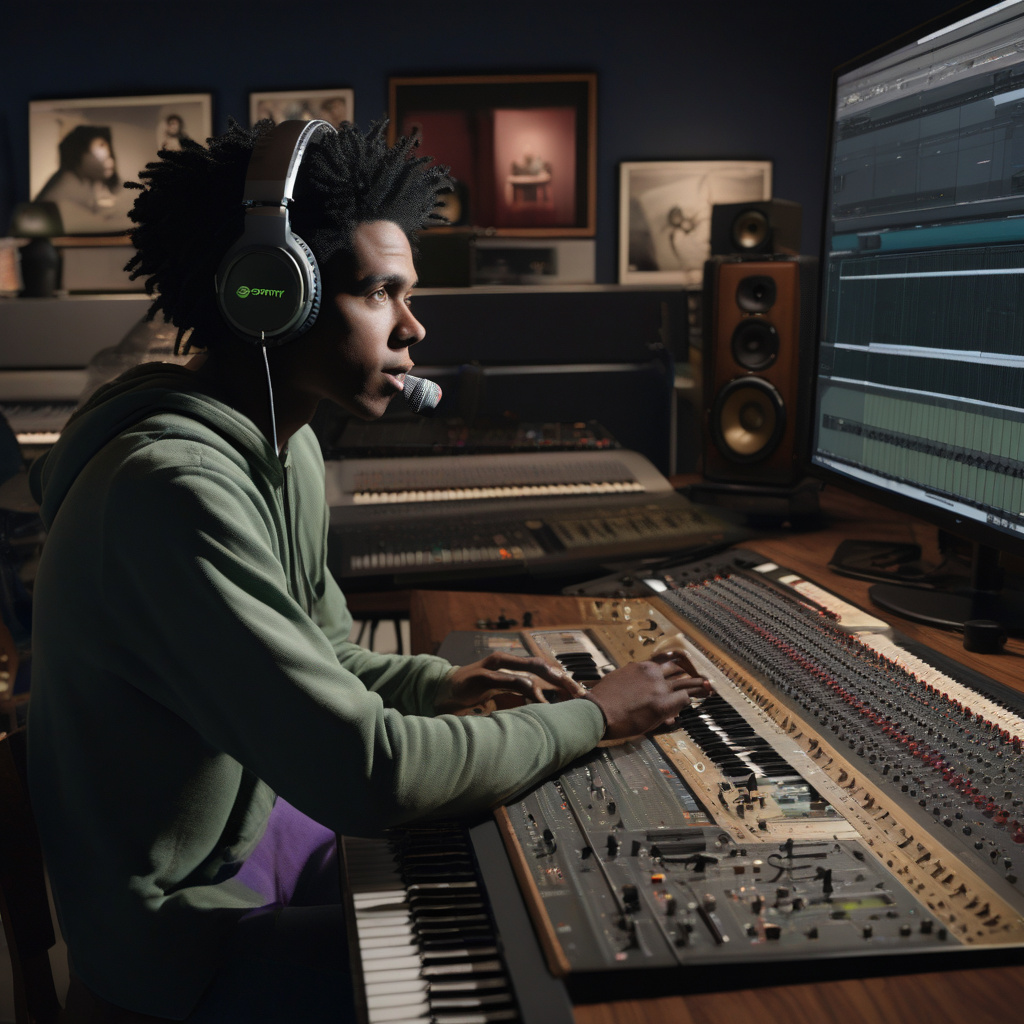Musicians on Alert: The Rise of AI-Generated Fakes on Spotify and iTunes
In the ever-evolving landscape of the music industry, a new threat has emerged, leaving musicians vulnerable to the perils of artificial intelligence. Recently, folk singer Emily Portman found herself at the center of a disturbing trend as fake AI-generated albums bearing her name surfaced on popular streaming platforms like Spotify and iTunes. This alarming development not only raises concerns about intellectual property rights but also sheds light on the growing challenges faced by artists in the digital age.
The case of Emily Portman is just one example of a larger phenomenon plaguing the music industry. As AI technology continues to advance at a rapid pace, it has become increasingly easier for malicious actors to create convincing replicas of artists’ work. These fake albums, often indistinguishable from the real thing to the untrained ear, not only deceive unsuspecting listeners but also pose a serious threat to the livelihoods of musicians.
The implications of this trend are far-reaching. Beyond the immediate issue of copyright infringement, the rise of AI-generated fakes has the potential to undermine the credibility and authenticity of artists. In an industry where originality and creativity are prized above all else, the presence of counterfeit works not only devalues the artistry of genuine musicians but also erodes trust in the integrity of the music marketplace.
The case of Emily Portman serves as a wake-up call for musicians everywhere to be vigilant and proactive in protecting their intellectual property. In a digital ecosystem where content can be easily manipulated and distributed without consent, artists must take steps to safeguard their work from exploitation. This includes implementing robust copyright protection measures, monitoring online platforms for unauthorized use of their material, and taking swift legal action against infringers.
However, combating the threat of AI-generated fakes requires more than just individual vigilance. It also calls for industry-wide collaboration and technological solutions to prevent the proliferation of counterfeit music. Platforms like Spotify and iTunes must invest in advanced detection algorithms and verification processes to weed out fake content and ensure that only legitimate works are made available to listeners.
Moreover, educating the public about the dangers of AI-generated fakes is crucial in curbing their spread. By raising awareness about this issue and encouraging listeners to support genuine artists, we can collectively work towards creating a more secure and trustworthy music environment for all stakeholders.
As the music industry grapples with the challenges posed by AI technology, it is clear that a concerted effort is needed to protect the rights and interests of musicians. By staying informed, proactive, and united in the face of this evolving threat, artists can continue to create and share their music with confidence, knowing that their work is valued and respected in the digital realm.
#AI, #MusicIndustry, #CopyrightProtection, #DigitalAge, #ArtistProtection












